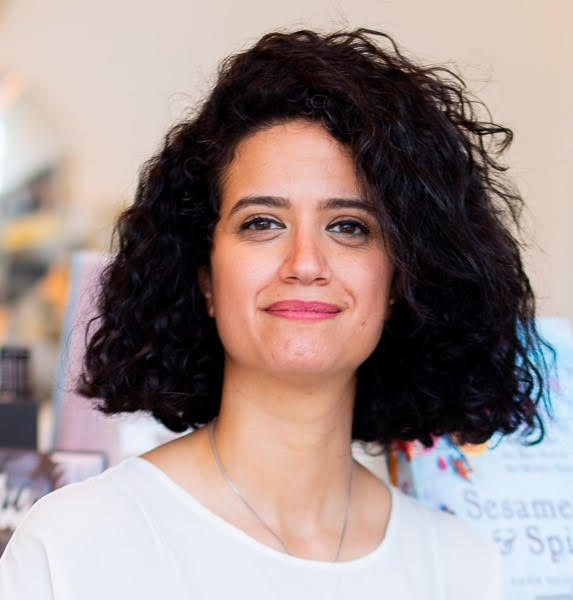كانت المعادلة الاستثمارية للمؤسسات الإعلامية سابقا سهلة وسريعة: إعلانات في الجريدة أو التلفزيون، شراء نسخة الجريدة يوميا، أو اشتراك في محطة تلفزيونية لميسوري الحال. هذه المعادلة كانت تدر أرباحا لا بأس بها لهذه المؤسسات، وكما يقول أديب مروة في كتابه "الصحافة العربية، نشأتها وتطورها": قيمة الجريدة التحريرية هي التي تخلق مكانتها وتزيد من عدد قرائها، وهي التي تؤدي بالتالي إلى إقبال المعلنين على الإعلان فيها. وهكذا فإن كثرة نسبة إعلانات الجريدة متوقفة على قوتها التحريرية وعلى كثرة عدد قرائها، وكلما ضعفت هذه القوة، أو زادت، قل أو زاد عدد المعلنين. ومن هنا فإن مقياس نجاح الجريدة أصبح يعرف اليوم من كثرة إعلاناتها".
هذا في السابق، فما الذي تغير اليوم؟
تحول الكثير من المؤسسات الإعلامية منذ سنوات إلى المجال الرقمي، الذي انتقلت معه أيضا أساسيات الإعلان لتكون هي المصدر الأهم للعائدات على المواقع الإلكترونية. غير أن الأمر أيضا لا يبدو بهذه السهولة، فالإعلانات التي نتحدث عنها هنا لا تظهر على المواقع الإخبارية فقط، وإنما أيضا تدخل فيها شركات التكنولوجيا العملاقة مثل غوغل وفيسبوك، ليكون لها أيضا نصيب من الكعكة.
بيد أن جدلا دار خلال الفترة الماضية حول إمكانية إيجاد نماذج جديدة لإدارة عائدات المؤسسات الإخبارية بالتحديد، بعيدا عن الإعلانات، بحيث لا تكون كل الأرباح ومصدرها في سلة واحدة. هذه النماذج الجديدة تتنوع ما بين الاشتراكات الشهرية أو السنوية، والتبرعات، والعضوية للحصول على محتوى قيم من هذه المواقع الإلكترونية.
في المنطقة العربية، بعض المؤسسات الإعلامية بدأت فعلا بتبني هذا التوجه. صحيفة "النهار" اللبنانية كانت من أولى المؤسسات التي أطلقت خدمة الاشتراك الشهرية أو نصف السنوية أو السنوية، والتي تتراوح قيمتها ما بين 5 و6 دولارات شهريا. وفي الكويت، أطلقت صحيفة "القبس" نظام اشتراك في محتواها بنفس القيمة تقريبا، مع تركيز على الاطلاع على الأرشيف، والتحليلات المعمقة، والأخبار الحصرية للمشتركين.
منصة "صوت" في الأردن، أطلقت خدمة "صوت بلس"، وهي نظام عضوية في الموقع، يمنح الأعضاء حصرية الاستماع لمقالات متنوعة ومعمقة نشرت عبر مواقع مختلفة. ومن أشهر المواقع التي اعتمدت نظام الاشتراك كذلك موقع "مجرة" في الإمارات العربية المتحدة، الذي يقدم مقالات وأخبارا متخصصة في الإدارة والتقنية والعلوم والصحة النفسية. وتصل قيمة الاشتراك إلى ما معدله 7 دولارات شهريا.
ومن المواقع التي أطلقت نموذج الدعم للمؤسسات الصحفية، موقع رصيف 22، إذ يمكن للأفراد دعم إنتاج المحتوى من خلال مبلغ مادي سنوي، أو يدفع مرة واحدة، وفق ما يختاره الفرد.
إذن، هناك توجه نحو الابتعاد شيئا فشيئا عن نموذج الإعلانات، وعدم الاعتماد على الشركات الضخمة للحصول على جزء من الكعكة. فما الذي يكبح هذا التوجه من المضي فيه بصورة أسرع، وهل يمكن أن يكون له أفق أكبر في المستقبل؟
باعتقادي أن هذا التوجه لديه مستقبل واعد، وبالتحديد في المنطقة العربية، ولكنه يستلزم الكثير من الوقت والجهد وبعض التغيرات التي يمكن أن تطرأ على المجتمعات وأوساطها. ولكن في الوقت الحالي، هناك الكثير من الأسباب التي تجعل ذلك بعيد المنال لبعض الوقت.
الوعي لدى الأفراد، وهل الأخبار أولوية بالنسبة لهم؟
اعتادت نسبة كبيرة من المهتمين في المنطقة العربية على الحصول على الأخبار بصورة مجانية، نظرا لأنها كانت ولفترة طويلة إما خدمة مجتمعية وبالتالي هم يعرفون ما يجري بالمقدار المسموح لهم به، أو هي شركات خاصة لا تعتبر الأخبار جزءا أساسيا من تحقيق الأرباح، وبالتالي تحقق أرباحها من خلال الإعلانات. حتى يتغير هذا الأمر، يجب أن يتغير وعي الأفراد ويدركوا بأن المحتوى الإخباري كأي منتج آخر يحتاج لتكلفة مادية وبشرية، وبالتالي إذا أراد استهلاكه عليه أن يقوم بالدفع كما يدفع لباقي المنتجات الأخرى.
المحتوى الإخباري حاليا يقدم مجانا، فلماذا أدفع مقابل الحصول عليه؟
هذا هو السؤال الجوهري الذي يدور في خاطر الكثيرين. وهؤلاء بالتحديد يحصلون على أخبارهم من مصادر مختلفة مثل مواقع التواصل الاجتماعي أو التطبيقات الإخبارية، وهي بالطبع تتوافر كلها بشكل مجاني. أعتقد أنه ما لم تكن هناك هبّة واحدة لوضع نظام اشتراك جماعي بين كل المؤسسات الإخبارية، فإن الغالبية ستتوجه إلى المحتوى المجاني، ويعود ذلك إلى أسباب اقتصادية واجتماعية موجودة في الأوساط العربية، تجعل شراء الأخبار من الرفاهيات.
المحتوى الإخباري.. بين السرد القصصي والتدقيق
بالرغم من تطور المحتوى العربي بشكل كبير خلال السنوات الأخيرة، فإن هناك الكثير مما ينقصه من ناحية التحقق من المصادر، وطريقة السرد. كما أن الكثير من المواقع العربية بصورة عامة يتحاشى فكرة التعمق في السرد أو الطرح التحليلي لما يجري، مما يفقدها التفرد والتميز، فتصبح الأخبار من كل المصادر واحدة يشبه بعضها البعض. هناك الكثير من الجهد الذي يجب أن يبذل على مستوى تجويد المحتوى حتى يشعر القارئ أن ما يستهلكه يستحق الاشتراك.
التركيز على المناطق المشبعة وإهمال "المناطق الجافة إخباريا"
قليلة جدا هي المؤسسات الإخبارية التي تتوجه إلى المواقع البعيدة عن المدن الرئيسية أو العواصم. هناك مواقع جغرافية يطلق عليها اسم "المناطق الجافة إخباريا"، وهي التي تفتقر لتغطيات إخبارية للأحداث التي تعيشها. هذه المناطق قد تشهد نسبة أكبر من الاشتراكات في حال تم التركيز على الأخبار المحلية التي تجري فيها.
بناء على كل ما سبق، أعتقد أن من أبرز التوجهات التي يجب أن تنتهجها المؤسسات الإخبارية؛ هي استهداف الجمهور الأصغر سنا، القادر على تكوين سلوكياته خاصة فيما يتعلق باستهلاك الأخبار بصورة تتماشى مع ما يتوافر في السوق. لذا ومع كل الصعوبات والأسباب الآنية التي تجعل هذه النماذج تفشل في الوقت الحالي، أعتقد أن المستقبل سيكون أكثر إيجابية ويحمل آفاقا واسعة لتغير في النماذج الاقتصادية لهذه المؤسسات.




















![Palestinian journalists attempt to connect to the internet using their phones in Rafah on the southern Gaza Strip. [Said Khatib/AFP]](/sites/default/files/ajr/2025/34962UB-highres-1705225575%20Large.jpeg)




















